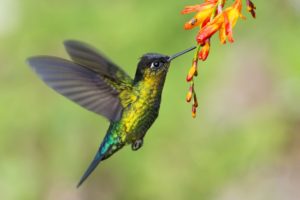We did not put out our bird feeders out this year since we are spending so much time away from the house this summer. Needless to say, we didn’t put out our hummingbird feeders either.
Whenever we do I am reminded about how different they are from sea gulls. When I would go fishing and come to shore to clean the fish the first gulls to see me would screech loudly to attract all their friends. It didn’t matter how many fish I had caught … they would screech and within minutes every gull within earshot was there waiting for me to finish cleaning the fish.
Yes, they might try to grab something from another gulls grasp, but they seemed quite communal in their approach. By contrast, I have watched gulls repeatedly try to steal food from pelicans, some going so far as to land on the pelican’s head and just peck at anything hanging out of its mouth.
anything hanging out of its mouth.
Here is a picture I shot of one gull sitting next to a pelican after several attempts. As I watch the birds in our yard feeding from the bird feeders they seem perfectly polite, each waiting their own turn. That is, until a cardinal comes along who tends to drive away any other bird to get to its preferred perch.
However, there is nothing more antisocial and greedy than a hummingbird. We have two feeders in the area and any hummingbird on any perch in any feeder becomes hostile to any other hummingbird even getting near one of those feeders. There are a total of 8 perches they could use, and two of them on each feeder would permit them to feed without even seeing each other … but no … they just never let another hummingbird eat when they are there.
How on earth did this bird species get to be this way? And, why is this a universal trait within the hummingbird species? If we ever needed to see an example of anti-communal behavior in the animal species, hummingbirds take the cake!
